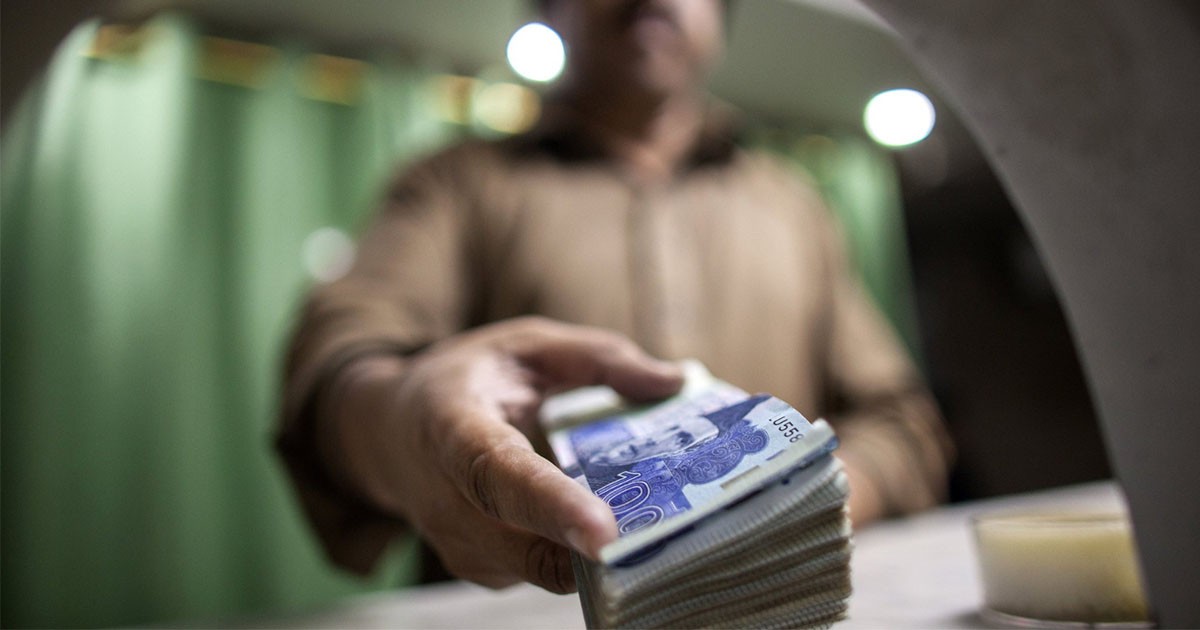News Desk |
Apart from the understated amount of taxes imposed on people, the International Monetary Fund (IMF)’s recent report has stated that Pakistan had enforced “market-determined” exchange rate regime since May 16, 2019 – a fact that the State Bank of Pakistan (SBP) was shy to admit.
“Since May 16, 2019, the SBP has allowed the exchange rate to be market determined,” the IMF report read. Earlier, it was not clear from when the policy of market-determined exchange rate was implemented.
The amendments would ensure price stability as SBP’s primary objective and prohibit any form of direct credit to the government.
Also, another condition states that Pakistan would reduce the SBP financing of it budget from over Rs 7.7 trillion and there would be zero borrowings from the SBP for budgetary support. For this, the SBP act would be amended.
The amendments would ensure price stability as SBP’s primary objective and prohibit any form of direct credit to the government. IMF has released the staff-level report five days after its Executive Board approved the $6 billion bailout package to help the country meet its international debt obligations.
Read more: Pakistan growth to hit eight-year low as IMF bailout looms
Pakistan, IMF finalize US$6 billion package
Pakistan and IMF had struck a deal on a bailout package for about US$6 billion over the next three years to meet foreign debt obligations. The IMF and Pakistan reached a staff-level agreement on economic policies for a three-year Extended Fund Facility (EFF) on May 12.
The agreement, which needed approval from the IMF’s management, had come after months of negotiations arising out of the economic crisis with short supplies of foreign currency reserves and stagnating growth.
IMF has released the staff-level report five days after its Executive Board approved the $6 billion bailout package to help the country meet its international debt obligations.
In brief, as per the Pakistan-IMF accord, Pakistan will receive $6 billion over three years and Pakistan will also receive US$2-3bn from the World Bank and the Asian Development Bank (ADB). Adviser to Prime Minister on Finance, Revenue and Economic Affairs Dr Abdul Hafeez Shaikh had hinted at raising prices in some areas “to recover costs”.
Shaikh had said that foreign loans had exceeded $90bn and exports have registered negative growth over the past five years.
Read more: IMF Reaches Staff-Level Agreement on Economic Policies with Pakistan
Decisive Reforms Necessary: IMF
On May 12, when the IMF and Pakistan reached a staff-level agreement on economic policies for a three-year Extended Fund Facility (EFF), a press release on the IMF website had stated that the EFF arrangement aimed to support the authorities’ strategy for stronger and more inclusive growth by reducing domestic and external imbalances, removing impediments to growth, increasing transparency, and strengthening social spending.
Shaikh had said that foreign loans had exceeded $90bn and exports have registered negative growth over the past five years.
IMF had said that decisive policies and reforms were necessary for growth. IMF had also said that ‘market-determined exchange rate’ would help the financial sector.
It stated that an ambitious structural reform agenda will supplement economic policies to rekindle economic growth and improve living standards, adding that financing support from Pakistan’s international partners would be critical to support the authorities’ adjustment efforts and ensure that the medium-term program objectives could be achieved.
Read more: IMF finally approves $6 bn loan for Pakistan
In response to a request by the Pakistani authorities, an IMF mission led by Ernesto Ramirez Rigo had visited Islamabad from April 29 to May 11 to discuss IMF support for the authorities’ economic reform program.
The 39-month EFF for about $6 billion agreement, the press note had said, was subject to the timely implementation of prior actions and confirmation of international partners’ financial commitments.













